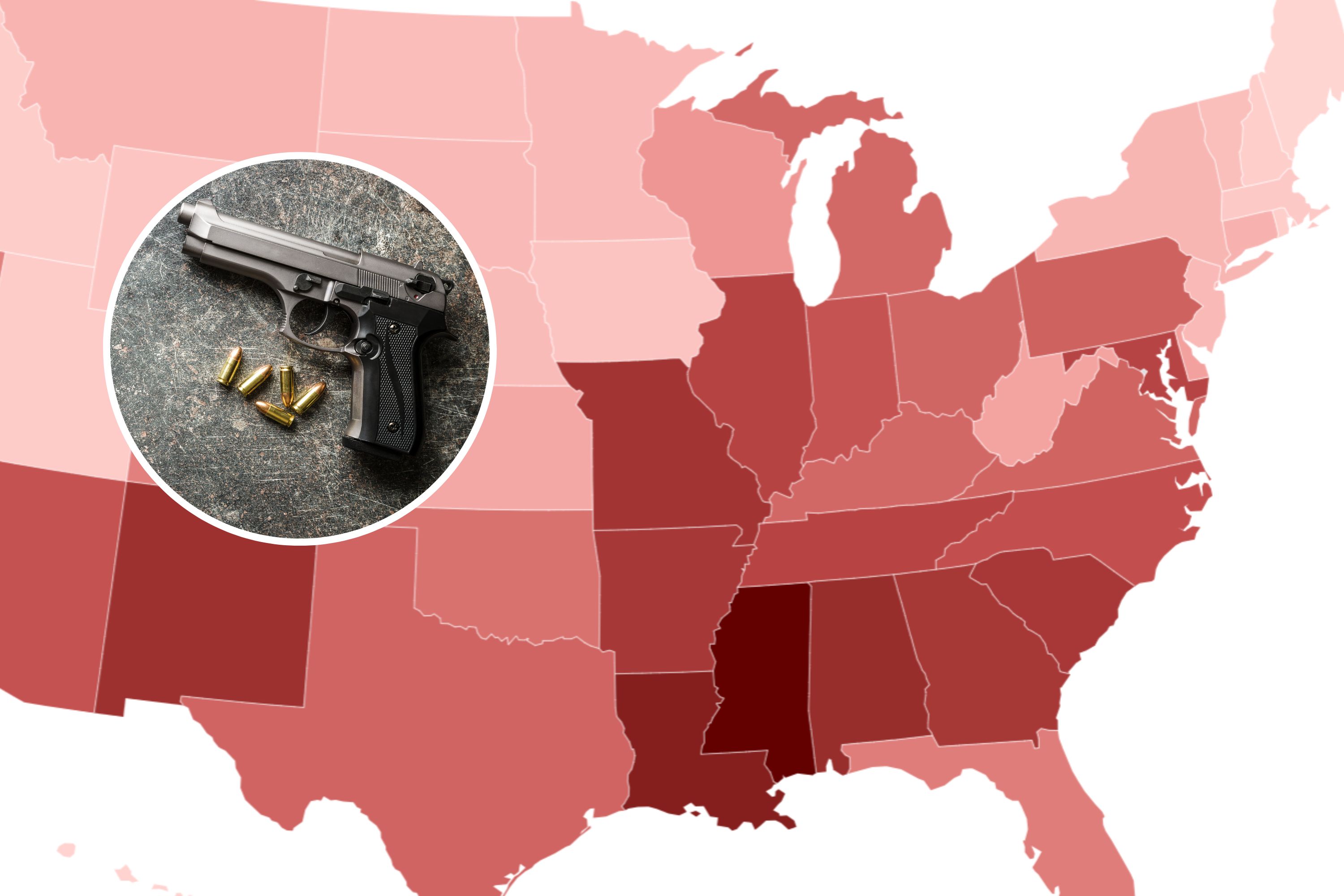Ukrainian leaders are calling on the U.S., European Union and International Monetary Fund to cover a predicted budget deficit of up to $55 billion, a shortfall which threatens to collapse Ukraine from within even while its troops steadily push back occupying Russian forces.
Kyiv insiders told Newsweek that the U.S. is expected to cover between one third and one half of the 2023 budget gap: a contribution of between $18 and $28 billion.
On Capitol Hill, that proposal could irk Republicans who pushed back on expanded financial aid, and progressive Democrats who called for more dialogue with Moscow.
The U.S. has already contributed more than $52 billion to help Ukraine—about $15 billion in financial assistance, $27 billion in military aid, and $9 billion in humanitarian support, according to Statista—making it by far the most generous nation backing Kyiv, though several European nations have contributed more as a proportion of GDP.


Ukraine needs more, Oleg Ustenko—an economic adviser to President Volodymyr Zelensky—said, regardless of the politicking in D.C. "We don't have any other choice," he told Newsweek from Kyiv.
Recent polling shows broad support for Ukraine remains, though rumblings of discontent on both sides of the aisle in Congress suggest enthusiasm for financial and military backing is not inexhaustible. This summer's $40 billion assistance package drew 57 votes against in the House, and 11 in the Senate; all from Republicans.
But with inflation soaring and many Americans struggling, every new aid package brings more fatigue.
"Why should the U.S. be expected to cover 'at least one third or maybe more' of Ukraine's annual budget deficit for 2023 when we can't even cover our own?" asked Sen. Rand Paul (R-KC)—a prominent skeptic of deeper assistance to Ukraine who single-handedly held up the summer $40 billion package—in a statement sent to Newsweek.
"Many senior citizens in the U.S. have lost a third of their retirement savings and are having a tough time with their social security pension keeping pace with inflation," the senator said. "I find it irresponsible to fund Ukraine's pension system while our seniors suffer."
Paul is not alone, though his outlook is still a minority one. Ten other GOP senators voted against the $40 billion package over the summer, citing inflation and oversight concerns.

A GOP congressional official—who spoke with Newsweek on the condition of anonymity as they were not authorized to comment publicly—said further large contributions will face difficulties on The Hill.
"The bigger the non-military total, the more bitter a pill it is to swallow," the official said, noting that there is still strong Republican support for military aid. "Where it does get tough, or tougher, is if we're just providing all this direct budget support. I think we'll still have enough votes, but there is an appetite to have the Europeans or the IMF do more on the non-military side."
The EU this month committed about $18 billion—around one third of what Kyiv says it needs—through 2023, in addition to the $9 billion committed for 2022. Ukrainian leaders have expressed frustration at repeated delays to the delivery of the EU funds, noting that U.S. financial aid has been delivered much faster.
Ustenko said the expected American contribution "is still an open question." Another economic adviser to Zelensky, who did not wish to be named as they were not authorized to speak publicly, told Newsweek Kyiv hopes for a "50-50" split between the EU and U.S..
The budget deficit is only one element of Ukraine's financial quandary, both advisers noted. Kyiv needs continued and extensive military aid to support the ongoing counter-offensives, plus dedicated aid to help rebuild infrastructure—particularly energy networks—damaged and destroyed by Russian missile and drone attacks.
This month, for example, Prime Minister Denys Shmyhal appealed for $17 billion in support for a "fast recovery" plan to address damage to hospitals, schools, transportation, energy infrastructure, and other areas.
Further Russian escalation will increase the expense. The Zelensky adviser that did not wish to be named noted that damage to the Zaporizhia nuclear power plant—Russian occupation of which still poses danger of a nuclear incident—might require tens of billions of dollars.
A U.S. State Department spokesperson noted its "robust bipartisan support for Ukraine," telling Newsweek: "We will continue to support Ukraine as long as it takes. As we plan for support to Ukraine in 2023, we are continuing to assess needs in conversation with our Ukrainian partners and in collaboration with Congress, our allies and partners."
"Economic assistance is central to these discussions, as is our commitment to support the continuity of Ukrainian government services for its citizens."

Ukrainians are clear on the importance of past, current, and future American backing. "I'm very much sure that both parties will continue their support to Ukraine," Ustenko said. "These internal discussions in each party might be taking place, but it doesn't mean that financial support to Ukraine will be abandoned."
"I can't believe that Republicans will be opposed to more financial aid to help us fight the KGB regime," the second Zelensky adviser said, adding he is more concerned about sentiment among progressive Democrats who this week published an open letter calling on the White House to push for more dialogue with Moscow.
The letter was quickly retracted after criticism that it echoed multiple long-standing Kremlin talking points. Rep. Pramila Jayapal (D-WA), who led the 30 progressive signatories, said the letter "was drafted several months ago, but unfortunately was released by staff without vetting."
Stalled on the battlefield, Putin is trying to regain momentum with escalatory steps and threats. Collapsing Western unity on Ukraine would be an enormous strategic victory for the Kremlin, and leave Kyiv without its military, financial, and political lifelines.
"Putin likes to create artificial chaos and political mess; any doubt for him with regards to Ukraine is a gift," Oleksandr Merezhko, a member of Ukraine's Rada parliament and chair of the body's foreign affairs committee, told Newsweek.
"The U.S. is our biggest ally and supporter, and any discord in U.S. politics regarding Ukraine might have serious consequences for us," Merezhko added.

Some observers have speculated that a GOP victory in the looming midterm elections might bring more isolationist Republicans to Washington, D.C. and create a more difficult environment for Kyiv's lobbyists.
"We hope that the result of the midterm elections will not have a negative impact upon the U.S. aid to Ukraine, and we hope to see in the Congress more, not fewer, friends of Ukraine," Merezhko said.
Establishment Republicans, meanwhile, are "pretty confident" that voters will stand behind Ukraine, the GOP congressional official told Newsweek, but wary of what they termed an "unholy alliance" between the White House and "this minority of isolationists to create the perception of a sea change in Republican attitudes."
"The idea that there's some tidal wave of pro-Putin isolationism coming is just not real," they said. "The only concrete act of appeasement has actually been on the Democrat side with that letter."
Uncommon Knowledge
Newsweek is committed to challenging conventional wisdom and finding connections in the search for common ground.
Newsweek is committed to challenging conventional wisdom and finding connections in the search for common ground.
About the writer
David Brennan is Newsweek's Diplomatic Correspondent covering world politics and conflicts from London with a focus on NATO, the European ... Read more





